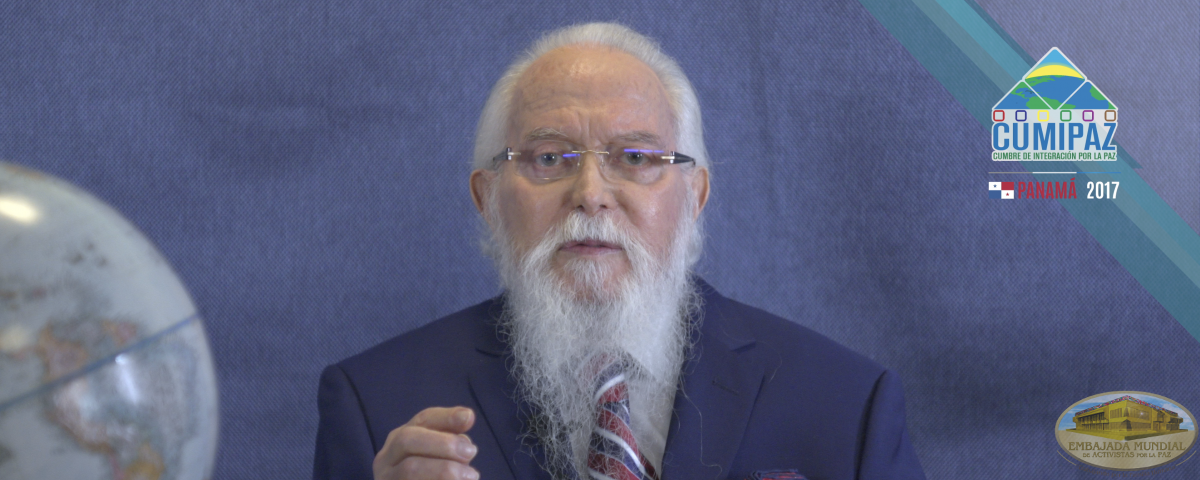
"Education in values, main instrument to create men of peace", Dr. William Soto Santiago
A cordial greeting to the presidium table and to all the participants who are accompanying us.
The Education Session of the Peace Integration Summit, in this third edition, must follow the necessary process towards the implementation and application of the agreements and conclusions reached in the two previous editions, adding the characteristics that education must gather in values oriented to the construction of a culture of peace.
"Education does not change the world; it changes the people who are going to change the world." This sentence from Paulo Freire allows us to reflect that, while education is the best tool for the economic, technological, and social development of a country, first, education must be recognized as a tool that can help us be better human beings: it allows us to know ourselves, to communicate, to better ourselves for our well-being and that of our neighbors.
Education must first integrally form the human being, so that the human being not only gives application to acquired knowledge, but a sense of purpose. That is, what he or she has learned is useful and good, because it is with a purpose and in function of that purpose. I believe that the “purpose” that we must achieve is to enable each student to positively transform their environment to achieve Peace. And "in function of that purpose" is the respect and love for each other, the consideration of our fellow neighbors and the other living beings that surround us. He or she must transcend his or her own limits, aspirations, and needs to be a being of integrity.
Sadly, at times, it seems that many students could reach the stars without having the ability to touch a heart.
Education should be for peace, beginning or in function of the respect for human dignity, fundamental rights, and the need to protect Mother Earth.
For some years, at the Global Embassy of Activists for Peace, we have been speaking about the importance of a paradigm shift in education and the need to consolidate in the heart a comprehensive education for the peace and happiness of the human being; and we have made great strides. But convinced, as we are, of having a valuable tool in our hands, we must seek the most expeditious mechanisms for its implementation and application in all fields of society.
Education in many cases has concentrated on forming the intellect, mind, or spirit, and in knowing, molding, and strengthening the body; however, in that educational process the most important part has been overlooked: Educating the heart or soul.
The ability to respect different ideologies, cultures, and customs, to contribute to the well-being of others and to the formation of more inclusive and just societies, must come from the heart rather than from the intellect.
It is not a question of establishing an education to increase the capacity for tolerance, but rather to increase the capacity to love others. This is achieved only when the person reaches a balance between his intellectual knowledge, the acquisition of skills, the development of his physical capacities and his training in personal and social values; that is, when he attains a harmony between his heart or soul, his mind or spirit, and his body.
At this Peace Integration Summit, we wish once again to urge all authorities to take the step of promoting the study for peace in their universities and to incorporate a subject in the schools destined to promote the formation of transformational leaders who are founded on values such as respect, solidarity, and the defense of Human Rights.
This is a great challenge, which again calls on all actors of education: the student, the family, the teachers, and the educational entity, as well as society and government. We believe that education is the right way to achieve peace.
So go forth, conscious forgers, builders of peace, well united and working for the peace of humanity, aware that education is the best tool to consolidate a stable and lasting peace.
Thank you very much.